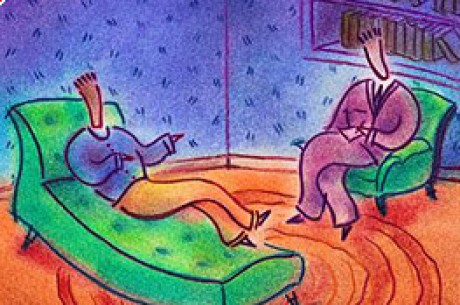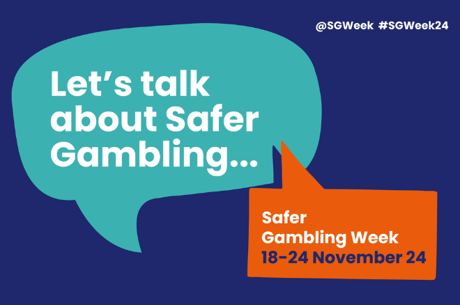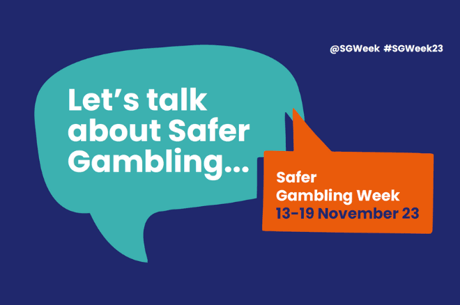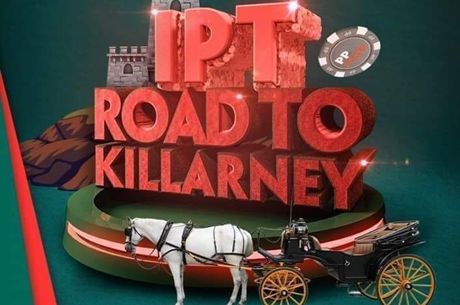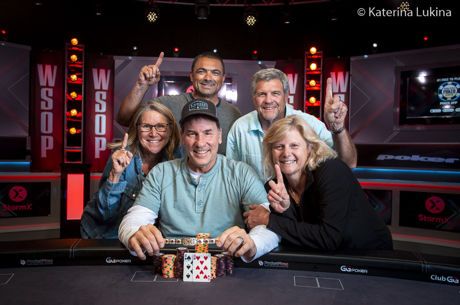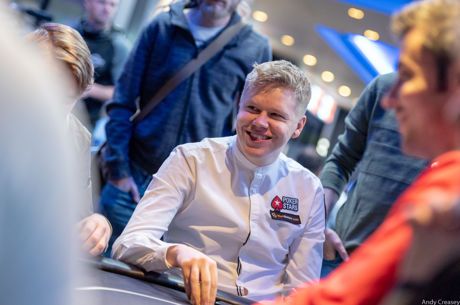The Poker Counselor's Corner (51)
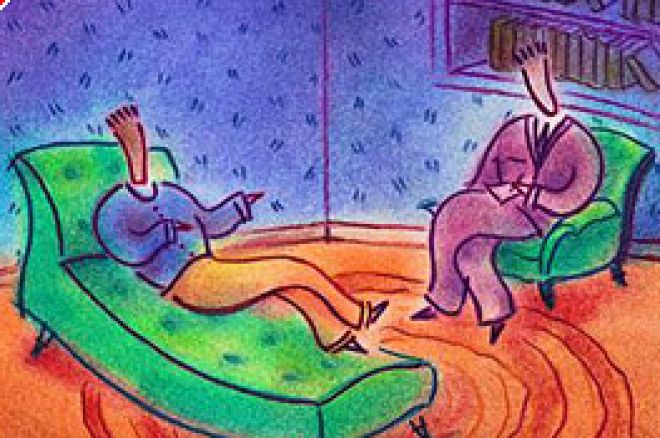
Editor's Note: In addition to being a poker enthusiast, gambling columnist, and lecturer, John is a National Certified Counselor (NCC). He has a Master of Arts degree in Counseling from West Virginia University, and a Bachelor's degree in Psychology with a minor in Sociology from Lock Haven University. You can arrange for interviews, speaking engagements, or ask your question to "the Poker Counselor" at [email protected]
I went on a crazy streak of 18 straight days turning a profit at the tables, with 10 of those days scoring nice wins over $100 each day. Well, a 6 day tear that I went on has pretty effectively wiped away all of that money. I lost money each of those days, losing $725 in one terrible day. How can I have "it" for 18 days and get creamed for 6? -Emailed by BlackBook
Dealing with streaks in poker is a psychological skill that even seasoned pros often battle with. The cards can be hot, and the cards can certainly be cold. You can be tuned in and playing great one day, but experience distractions and poor decision making the next. To say that this is a fickle game is a blatant understatement. One thing that I'd encourage you to evaluate is your personal role in the downturn. Don't allow yourself to blame poor luck and bad cards. Instead, try to identify within yourself what changed in that timeframe. I might guess that the winning was part of your undoing. You see, consistent winning changes our personal poker psychology. The wins produce euphoria in its initial stages. Soon, that energy morphs into a subconscious cockiness. You feel more capable than ever. You feel powerful. In essence, you nearly view yourself to be unbeatable. After 18 days of success, your mind leads you to hasty assumptions and a dangerous sense of invulnerability. Soon, you'll find yourself compelled to make more pre-flop calls with marginal hands. Your mind is leading you to think that good fortunes are sure to hit upon the flop. Even if the hand does not hit, your ballooning ego has you thinking that you can steal the pot with your clever ploys. This volatile mix can lead to devastating results, as it is a mindset that can overshadow your better judgment and normal poker style. While some say that success breeds success, we have to be careful with this thinking in terms of poker. Success can lead to overconfidence, poor judgment, and poor play. I always encourage players to tread lightly and carefully in the midst of losing streaks and winning streaks. Both can eventually lead to a hit to the poker bankroll and a hit to the poker confidence, if not keenly controlled.
Home game situation. Down to final three players. Each of us is in the money. The pay-outs left are 45%, 30%, 15%. Loose-aggressive chip leader raises it about 4 times the BB, not an unusual occurrence. Tight player with shortest stack calls. I figure he's playing for the rest of his chips because the call was just a bit less than ? of his stack. I look down at A-Q off suit. I'm in 2nd chip position, thinking if I hit this hand I have a great chance to win it all. I went into the tank, thinking about it for a long time. I am not a guy that normally takes any time to think, especially at just a home game with only a couple of hundred bucks at stake. I really had a tough one on this one, though. -Emailed by Jammon
You don't give me the numbers to calculate the pot odds on this one, but I suppose that you would not be emailing the Poker Counselor for pot odds. You are looking to break down the psychology of the hand, I'm guessing. Let's start with your opposition and their motivations. Mr. Loose is the big stack, so he can afford & is motivated to raise with nearly any two cards from the button since you are 3 handed. I'd assume that the blinds (and probably antes by this juncture) would be juicy enough to want to steal. Thus, it would be tough to pin down what hand this guy is sitting on. He could literally have any variation of hands. The person that had you put the brakes on was the short-stacked tight player. His call in that situation seems extremely suspicious. It sounds as if he's leaving himself only with a few chips. You figured that he was playing for the rest of his chips, no matter the texture of the flop. With that in mind, you have to wonder if he's calling in an attempt to entice you to call. Since he is tight, perhaps he was calling with a monster pocket pair and was looking to parlay it into a triple-up. Now let's take some time to think about your own psychology. Your deep think was driven by your strong desire to win. Although your instincts and intellect probably told you that you were behind the hand that the tight player held, you had to weigh that against the compulsion to roll the dice and go for the victory right then and there. Your competitive drive saw an opportunity to secure the victory, so it was pushing you to make the all-in move. On the other hand, your ego was battling with your propensity to gamble. You see, that ego makes you feel that you can win by outplaying your opposition, not by winning a coin flip. All of these thoughts (and more) were colliding in your head in that critical moment in the game. That is why you needed time to think. My suggestion is always attempt to peel away the emotional compulsions that weigh in on the decision. Think through the thoughts and emotions of your opponents, the chips, the positions, the status of the blind, and the odds - but don't simply call or fold due to ego, curiosity, or hope.
Keep those questions coming!! [email protected]

